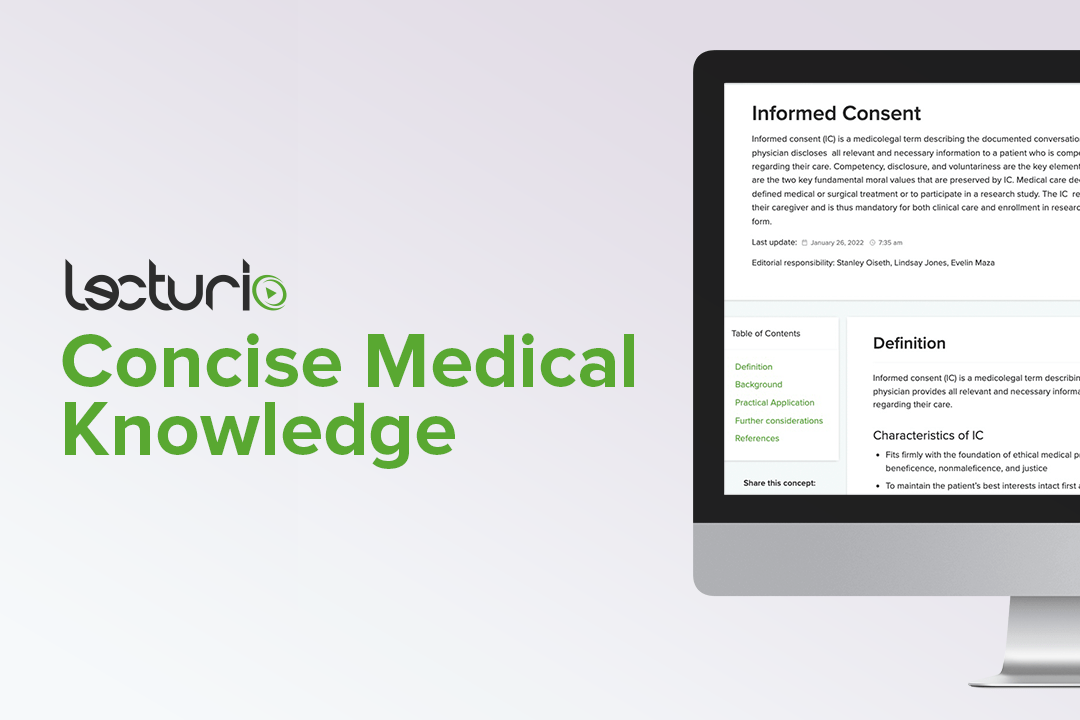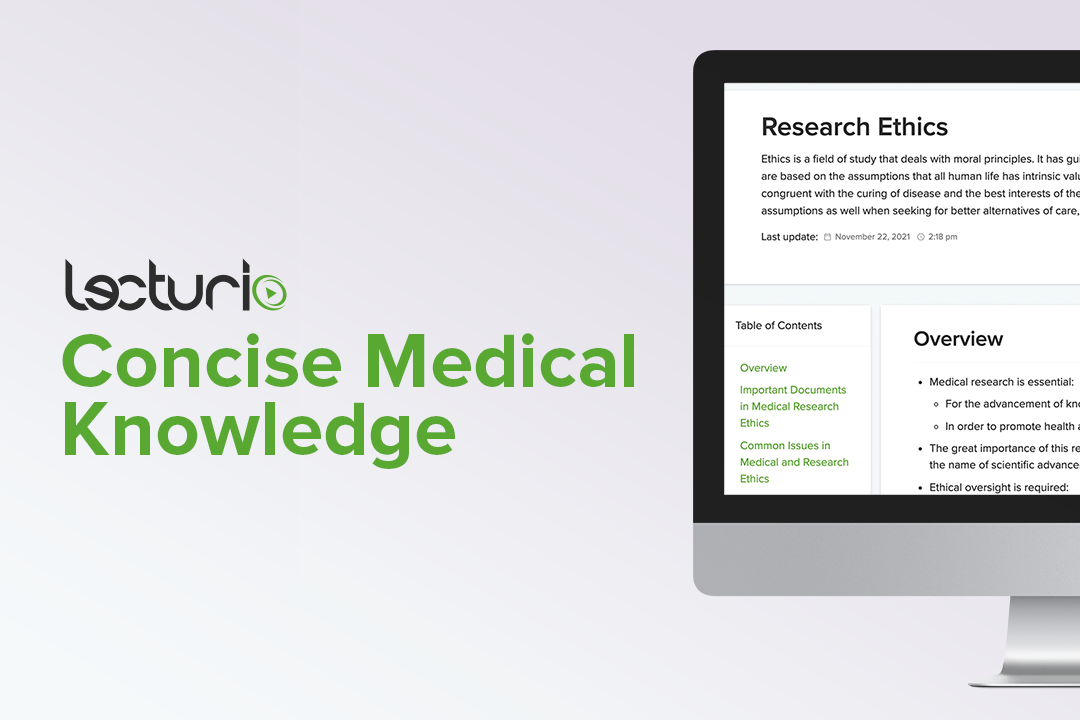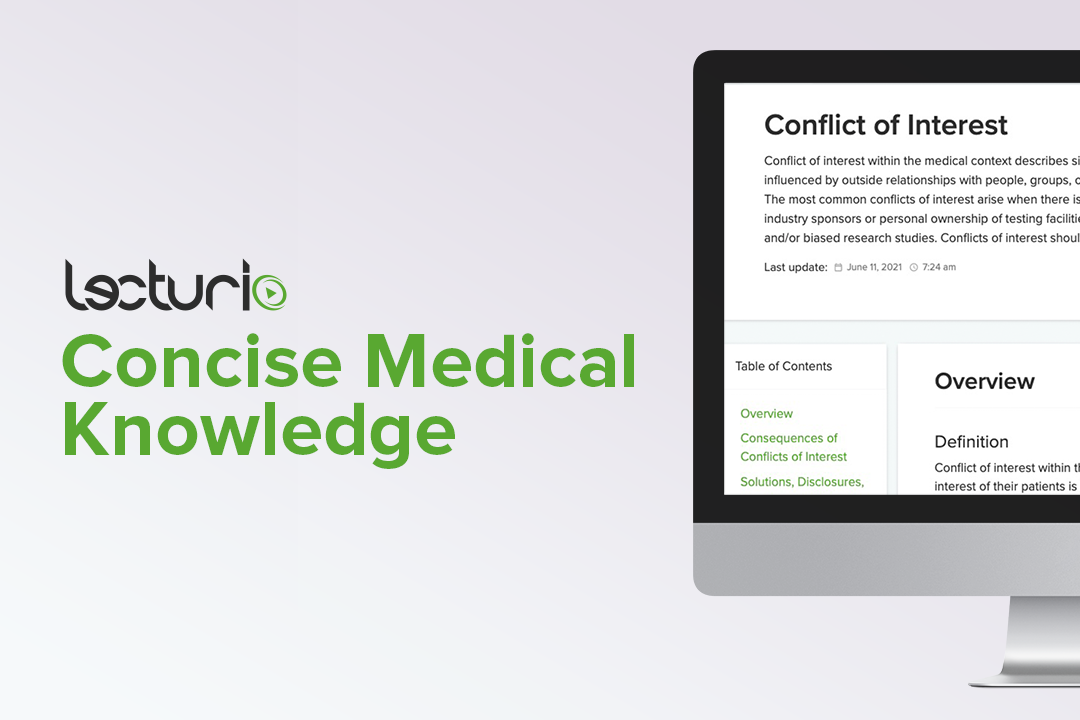Playlist
Show Playlist
Hide Playlist
Ethical Responsibilities of Clinician Investigators
-
Slides Ethical Responsibilities of Clinician Investigators.pdf
-
Download Lecture Overview
00:01 There are important considerations when one is a clinical investigator that I'd like to walk through with you. 00:08 First to be recognized that there's a dual role of being both a clinician and an investigator. 00:14 The differentiation being that in practice, you know, when we're taking care of patients, our objective is to enhance the well-being of those patients. 00:23 Whereas in research, we're hypothesis testing to increase knowledge. 00:28 So the clinician investigator is trying to serve both purposes. 00:33 This dual role can create conflicts of obligation that may manifest itself in subject recruitment. 00:41 So questions about, you know, can a clinician enroll their own patients as research subjects? It may involve the informed consent process. 00:51 So how a clinician investigator presents the research study, how they frame that in the context of the patient's clinical care, there might be, you know, influences on the informed consent process. 01:05 It also might involve the conduct of the study. 01:07 So, how you conduct the study, the procedures that are done, are they mainly to answer the study hypothesis? How much are they for the clinical care of the patient? When it's the investigator? How adherent do they need to be to a protocol? And how much can they deviate from that when they think it's, you know, for the clinical best interest of the patient? That there's this conflict or, you know, desire to serve both purposes. 01:39 But sometimes, there's going to be challenges and difficulties. 01:43 Another aspect of this, you know, when we're thinking about clinical investigation is from the patient perspective when they are a research participant, the concerns of a therapeutic misconception. 01:56 So the belief that the purpose of the clinical trial is to benefit the individual patient rather than to gather data for the purposes of contributing to scientific knowledge. 02:07 So they think they're getting therapy, when in actuality, it's for a research aim or answering a hypothesis. 02:15 And what happens is that there can be a tendency of that patient subject to overestimate the benefit, when they think that, you know, there's going to be a likelihood of direct benefit to them, in actuality, it's pretty low. 02:29 Or, you know, there might be, you know, research design, such as a placebo-controlled trial where you know that half of the study population is going to be precluded from getting any kind of direct benefit. 02:42 And they're still thinking that there's going to be this therapy for them. 02:45 So one of the roles of the clinician investigators make sure to avoid the therapeutic misconception both on their own behalf, but also in the minds of the patient who becomes a research subject. 02:58 It does raise an interesting question of whether it's permissible to use placebos in clinical research. 03:04 So the Declaration of Helsinki, one of these guiding documents about how to do clinical research does talk about the use of placebos. 03:14 So, in general, you'd want to use a proven therapy, you know, what's already in existence as the standard of care as the comparison when you have a new intervention. 03:25 So you're going to have a study design where you have the new intervention and maybe the other study arm is the standard of care, the proven intervention that's already in existence. 03:34 Sometimes that is not possible. 03:36 So either there is no proven intervention that exists or there might be compelling scientific or other reasons to say it's methodologically more important to compare this to a placebo. 03:50 And you might get a, you know, answer to the scientific question quicker if you use a placebo rather than the standard of care. 03:59 The justification of that has to be sound, you have to say why you're using the placebo, why you might decide to use no intervention. 04:07 And there have to be acceptable reasons for why that might be pursued. 04:13 And the patients who receive any intervention that is less effective than the best proven one what's already in existence. 04:19 If they're either receiving a placebo or no intervention, they have to recognize that there might be additional risk from their involvement. 04:27 They might, you know, have more serious harm as a result of they're receiving this placebo or no intervention, rather than the best proven intervention that they might have gotten had they gone with standard of care. 04:41 So the use of placebos, according to the Declaration of Helsinki, you know, has to be done with extreme care, really need to avoid any kind of abuse of this option and make clear why you might need to use a placebo in a particular research study. 04:55 Another consideration for clinical investigators is going to be something called equipoise. 05:01 So this is known as clinical or collective equipoise. 05:05 So in general, a physician that is taken care of a patient, you know, is trying to abide by the Hippocratic maxim that says, "I will benefit my patients according to my best judgment." Whereas when you're a researcher, you're trying to answer the hypothesis, you're trying to answer the research question. 05:23 So when there are concerns about equipoise, this is saying, it's permissible for a physician to enroll a patient in a study when there is uncertainty about the proven benefits. 05:36 So the scientific community as a whole collectively feels, there's uncertainty, we need to do the research study in order to get an answer as to whether or not this new therapy is going to be effective or not. 05:49 And it's not necessarily the, you know, the individual clinician, the individual investigator, they might have their own leanings, or hunches as to what might be a better therapy. 06:00 But they're suspending that and allowing the research to answer the question. 06:05 And, you know, if it's two arms in a study, determining the relative merits of each arm of the trial, to resolve this equipoise, this uncertainty. 06:14 Another consideration when we're thinking about clinical investigators is going to be conflict of interest. 06:19 So this is when a secondary or a personal interest competes with a primary interest or primary obligation. 06:27 So for example, when you're an investigator, you need to have objective, safe research. 06:32 And, you know, might be personal interests that then, you know, threaten that primary obligation. 06:38 Lots have been written about conflicts of interest, you know, people mainly focus on financial conflicts of interest. 06:46 So, if the results of research are positive, there might be financial gain to the investigator, we see that as a conflict of interest. 06:55 There may also be other personal interests that are not tied to finances or economic gain. 07:01 Those things like what you see in academia, you know, getting publications, getting grants, getting promoted, getting, you know, some amount of prestige for your research, those are personal interest that might influence or seem like they are in conflict with your primary obligation to perform objective safe research. 07:25 And where you get concerned about conflicts of interest, it's going to be in the study design. 07:30 So if you are doing an investigational drug or device, are you designing the study in such a way that, you know, the results of that investigational drug or device are going to be more likely to happen? That's the driver for how you've designed the study. 07:47 Or their, you know, are you working with industry, a particular company that might design the study to be more favorable to their investigational drug or device? There may be concerns about conflict of interest affecting your attention to the safety of research subjects as they are participating in the research. 08:06 So are you paying enough attention to the protocol and their safety, monitoring things closely? Or you're more concerned about getting the study done because you've got these personal interests at stake? And then lastly, there might be concerns of, you know, how closely you're adhering to collecting and storing data with integrity. 08:28 Are you actually generating valid results? Are you cutting corners? Are you misrepresenting data in order to have your personal interests met? So all of these things become a concern when you're a clinician investigator involving human subjects, you want to make sure that these conflicts of interest are not prejudicing or biasing how you conduct the research or how you analyze the results once the research is done.
About the Lecture
The lecture Ethical Responsibilities of Clinician Investigators by Mark Hughes, MD, MA is from the course Clinical Research Ethics.
Included Quiz Questions
How might the dual role of clinician and investigator lead to conflict? Select all that apply.
- By how a research study is framed in the context of clinical care during the informed consent process
- By subject recruitment, e.g., enrolling one's own patients
- By protocol compliance and conduct, e.g., are the procedures done mainly to answer a study hypothesis or are they done for the clinical care of the patient?
- By interfering with administrative workflow
- By interfering with patient advocacy
What might result from therapeutic misconception?
- Overestimation of direct benefit
- Underestimation of the time commitment that research requires
- Withdrawal of informed consent
- Skipping appointments
- Failure to comply with a research protocol
What defines equipoise?
- A state of equilibrium
- Maximizing patient benefit from treatment
- Placebo trial
- Strict adherence to study protocol
- Excluding patients who do not benefit from a study drug
Which of the following might represent a conflict of interest?
- Financial gain for the investigator from a research study
- Improvement of patient care through a research study
- A patient receiving payment for participating in a research study
- Publication of research results
- A patient experiencing long-term side effects related to treatment
How might research design preclude direct benefit to some patients?
- By performing a placebo-controlled trial
- By requiring long-term follow-up
- By using the informed consent process
- By following the requirements of an online survey
- By using biomarker testing
Customer reviews
5,0 of 5 stars
| 5 Stars |
|
5 |
| 4 Stars |
|
0 |
| 3 Stars |
|
0 |
| 2 Stars |
|
0 |
| 1 Star |
|
0 |






